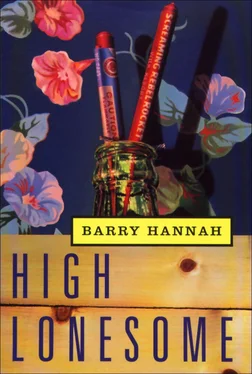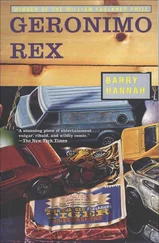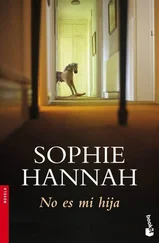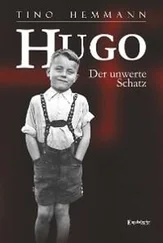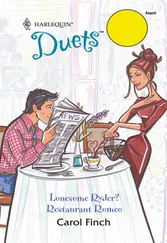You can’t hurt me, I said. Then I began laughing. But she was red and nearly weeping in the face.
Hit me some more, wench. Do out this farce. You don’t even understand the word, do you?
She began crying then: I’m sorry. I showed myself because I’m so sad, so sad. It wasn’t to mean nothing, she spluttered.
You an old man, said Modock.
Take a joke, she said.
I’ll eat that pussy right off you, I grinned.
Attaboy she smiled through the tears. We were all familiar again.
Modock looked away. This boy might be a hero, even in the national papers, but by God he was dull. You get this American specimen nowadays that’s either shooting somebody or stone boring.
You hear what I said, Modock? That’s how old man I am. Put that pussy on my head and wear her down the street like a hat. Hey. I nudged his shoe with mine. You got no honor? I be disrespecting you big sisser. All he could do was look pained and stroke that frowning bobcat, staring out the window as if there were some help out there.
I believe you sisser got some new big bosoms trained out of her from the gym. Got them thigh muscles now. She be a roving clamp, son.
I’d guess the two were separated in age by one of their father’s longer penitentiary sentences. Minkle must be thirty-five. In this town, away from Carriba, she had risen in the world. Modock was going nowhere.
He used to wear a python around his neck, down in Carriba. He had a girlfriend too, around his neck when the python wasn’t, when I first met him.
Things were much tenderer and more awesome then, and I was a journalist sent down to cover the debris of misery after the killings. Now I am no longer a journalist and am relatively poor. It was the end of my career that way. I had never covered murders and had never worked a story in my home state. Murder is not interesting, friends. Murder is vomit. You may attach a story to it but you are already dishonest to the faces of the dead, in this case Modock’s father Henry and two policemen Henry had killed with his shotgun on the town square. I knew I had no place arranging this misery into entertainment, a little Hamlet for busy-bodies and ghouls. Nor could I add my other hyena’s worth to our already mocked and derided state, where I lived and worked and hoped. Doesn’t this sound noble of me? The fact is I have turned into a geezer and elected alderman of the town here. A booster, even. Around age forty-five there might be a pop and a hiss in your heart, and you are already on your way, a geezer. Nothing is good or like it used to be, not even nookie. A great gabby sadness swarms over you. You are an ancient mariner yanking on the arms of the young. See here, see here.
Modock’s distress, sitting there on the couch with the python draped around his neck, his gruesome high school sweetie pressing him to marry her, get a car and a job and some money, threw me into action. Come on, die with us, real close to us, the sweetie and Modock’s dreaded mother Blackie might as well be screaming: It’s lonesome, come on pretty thing and die with us, snuggle up there. Modock is pretty. Put a good sweater on the boy and he’s instantly in a movie about the right side of the tracks. I saw him as a freshman here at the university, look of a teenage saint on him — those pained green eyes — first in his family at a college ever. I told him to get out of the place and live near me five hours upstate, in this little gem of a burg. He shocked me by accepting.
Now they’re both here, he and Minkle, in that modest brown wooden rental next to me in this white subdivision, mainly red brick and ranchy, of the Eisenhower years. Wide streets and combed curbs with the dogs sleeping away blissfully in their rabbit dreams. Briefly he improved. He had work at the Whirlpool plant and the manager, a pal of mine, gave him a Subaru cockeyed on its frame from an old wreck, so Modock goes forever leftward down the road whichever way he goes. He had his old hound, Beaumont, and I brought him over some books and pictures. His grades were not bad down in Carriba High although he detested the place. Everybody had airs. I noticed even the weather-woman on television seemed to threaten him with airs.
Son, I said, Can’t you see the bod on her, those nice smacking lips?
Nobody dressed like that talks about rain, he said.
But the slope, the promise of that hip on her.
You wear you pants around you head.
He was the son of a prisoner released three times to kill again, always pleading self-defense. Always innocent somehow, this man. An altercation on a back porch — somehow the gun discharged, hell of a thing. He wrote songs in prison. His lawyer, a former gubernatorial candidate, showed them to me. Untamed broken heart, Manslaughter One/Miss My Daughter and Tiny Sons. Henry, forever getting a bad deal, just wanted to sing. If he could just quit killing people and get some private lessons. I saw a photograph of him and Modock smiling together, arms across shoulders, a guitar hanging off Henry’s neck. It was a good one, not cheap. Henry’s hair looked suddenly arisen in oil and hope. Henry and Blackie divorced and remarried several times. She told me she had “been” with Henry the night before his last rampage.
Henry seems to have been one of a very rare breed in whom marijuana, which he used frequently, induced a murderous psychosis. Two young well-built patrolmen had lately been “bothering” him. Or not. Henry had a case of policemen bothering him just about forever. The two cops “shook him down” in front of his friends in a restaurant on the square. He was free of dope. But in a few minutes he walked out to his white camper, perhaps toked-up (although the state toxicology lab pronounced his body free of drugs, Blackie said he was never free of drugs) and set upon the policemen with a twelve-gauge loaded with buckshot. He killed both of them, although there were two bullet holes in the window of the camper, which I examined. Then he went home, where, as the beloved Robert Frost said, they have to take you in. But he went home brandishing the shotgun and wanting to kill everybody. A younger cousin stood in his way and Henry leveled on him. The cousin, a hunched skinny man with homemade tattoos crawling all over his arms (in prison, they use old-timey carbon paper and a needle to do this upon themselves; there’s plenty of time), said this to Henry:
Well, Henry, go ahead and do what you have to do.
What you have to do. Imagine. I loved the steel of this, my friends.
I talked to a black policemen about the incident and Henry.
Well, Henry’s in heaven now, he said.
In heaven, after killing five men?
He’s in heaven .
But I can’t figure why he was allowed even on the streets of here, I said.
This earth were not his home .
You forgive him?
There ain’t no other choice .
Henry Modock was fifty-three when he died. He had got himself against the wall of the rented barracks compound where they all lived — he sometimes, when in good with Blackie. He continued to rave and to brandish. His son was somehow now in the camper. Henry pointed the gun. Modock rammed him against the wall of the barracks. Henry howled in agony, his last. The boy carried a nine-shot.22 revolver behind his leg. Henry, even in his parlous state, leveled the shotgun one more time. Modock shot him nine times, to death. One guesses it was in essence suicide, this act, but Henry went for the nastier patricide. Consistent with the riot of self-pity forever in the heart of most killers of his stripe. Legacy of the son with bloody hands. Taking you with me, boy. I love you that much. Squeeze on up here for a hug, it’s lonesome and deep here.
Why’d you make me shoot you, Daddy? You knew we loved you, said Modock.
Читать дальше
